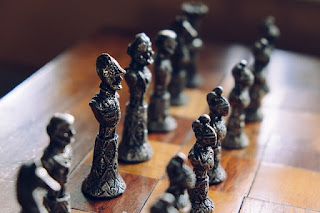| Controversies about Women
Image Source pixabay
Changes in family structure and some shifts in the economic roles of women, plus ambivalent Protestant promptings about women that emphasized the family context but urged affection and respect between wives and husbands, touched off new gender tensions in Western society by the 17th century. Some of these tensions showed in witchcraft trials, so disproportionately directed against women. Other tensions showed in open debate about women's relationship to men, in which new male hostility toward women not content with a docile wifeliness vied with new claims of virtue and prowess by some women. Though the debate centered in the upper class of Protestant nations such as England, it may have had wider ramifications; some of these ramifications, though quieter during the 18th century, would burst forth again in arguments about inequality and family confinement in the 19th century, when a more durable feminist movement took shape in the West. In the selections below, the antiwoman position is set forth in a 1615 pamphlet by Joseph Swetnam; the favorable view implicitly urging new rights is in a 1640 pamphlet pseudonymously authored by "Mary Tattle-well and Ioane Hit-him-home, spinsters." Swetnam's "Arraignment Of Women" Men, I say, may live without women, but women cannot live without men: for Venus, whose beauty was excellent fair, yet when she needed man's help, she took Vulcan, a clubfooted Smith. . . . For women have a thousand ways to entice thee and ten thousand ways to deceive thee and all such fools as are suitors unto them: some they keep in hand with promises, and some they feed with flattery, and some they delay with dalliances, and some they please with kisses. They lay out the folds of their hair to entangle men into their love; betwixt their breasts is the vale of destruction; and in their beds there is hell, sorrow, and repentance. Eagles eat not men till they are dead, but women devour them alive. . . . It is said of men that they have that one fault, but of women it is said that they have two faults: that is to say, they can neither say well nor do well. There is a saying that goeth thus: that things far fetched and dear bought are of us most dearly beloved. The like may be said of women; although many of them are not far fetched, yet they are dear bought, yea and so dear that many a man curseth his hard pennyworths and bans his own heart. For the pleasure of the fairest woman in the world lasteth but a honeymoon; that is, while a man hath glutted his affections and reaped the first fruit, his pleasure being past, sorrow and repentance remaineth still with him. Tattle-Well And Hit-Him-Home's "Women's Sharp Revenge" But it hath been the policy of all parents, even from the beginning, to curb us of that benefit by striving to keep us under and to make us men's mere Vassals even unto all posterity. How else comes it to pass that when a Father hath a numerous issue of Sons and Daughters, the sons forsooth they must be first put to the Grammar school, and after perchance sent to the University, and trained up in the Liberal Arts and Sciences, and there (if they prove not Blockheads) they may in time be book-learned? . . . When we, whom they style by the name of weaker Vessels, though of a more delicate, fine, soft, and more pliant flesh therefore of a temper most capable of the best Impression, have not that generous and liberal Education, lest we should be made able to vindicate our own injuries, we are set only to the Needle, to prick our fingers, or else to the Wheel to spin a fair thread for our own undoing, or perchance to some more dirty and debased drudgery. If we be taught to read, they then confine us within the compass of our Mother Tongue, and that limit we are not suffered to pass; or if (which sometimes happeneth) we be brought up to Music, to singing, and to dancing, it is not for any benefit that thereby we can engross unto ourselves, but for their own particular ends, the better to please and content their licentious appetites when we come to our maturity and ripeness. And thus if we be weak by Nature, they strive to make us more weak by our Nurture; and if in degree of place low, they strive by their policy to keep us more under. Now to show we are no such despised matter as you would seem to make us, come to our first Creation, when man was made of the mere dust of the earth. The woman had her being from the best part of his body, the Rib next to his heart, which difference even in our complexions may be easily decided. Man is of a dull, earthy, and melancholy aspect, having shallows in his face and a very forest upon his Chin, when our soft and smooth Cheeks are a true representation of a delectable garden of intermixed Roses and Lilies. . . . Man might consider that women were not created to be their slaves or vassals; for as they had not their Original out of his head (thereby to command him), so it was not out of his foot to be trod upon, but in a medium out of his side to be his fellow feeler, his equal, and companion. . . . Thus have I truly and impartially proved that for Chastity, Charity, Constancy, Magnanimity, Valor, Wisdom, Piety, or any Grace or Virtue whatsoever, women have always been more than equal with men, and that for Luxury, Surquidant obscenity, profanity, Ebriety, Impiety, and all that may be called bad we do come far short of them. |
- Get link
- X
- Other Apps
Popular Posts
- Get link
- X
- Other Apps



Comments
Post a Comment